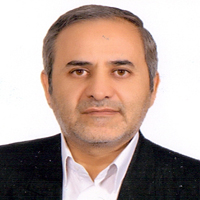Role of Government Servants’ Simple Living in Sanity of Islamic Republic of Iran Based on Imam Khomeini’s Viewpoints
This paper intends to study the two-sided effect of simple life or lack of simple life and luxury life in sanity and stability or lack of sanity and consequently instability of the governments in view of Quranic-Islamic teachings as well as conducts and traditions attributed to the Prophet (pbuh) and Imam Ali (AS). It is also to develop a model for use in the Islamic Republic of Iran as a religious government. In addition to taking the founder of Islamic Revolution Imam Khomeini as a model, we have also adduced instances from his recommendations and life as a leader who lived a simple life. As a multidimensional scholar and politician and thanks to his in-depth sociological insight, Imam Khomeini was well-versed in Islamic and historical studies, history of Islam and Muslims, and well aware of the role of government agents and politicians’ simple life in sanity and stability of the Islamic Republic of Iran. He used to openly express his concerns and lay emphasis on living a simple life, contentment in personal life, and safeguarding baitulmaal or public treasury on the part of the government agents as key factors for protection, stability and sanity of the Islamic system of government.
-
a layered Investigating of leveles of conflict between Iran and U.S. and it's strategies
*, Mohammad Mahmoodkia
Journal of Islamic Revolution Research, -
the role of Islamic Republic of iran armed forces in realizing the second phase of the islamic revolution
Hamid Jafari, *, Bashir Esmaeili
Journal of Islamic Revolution Research, -
Analysis of the content of the discourse of resistance economy policies in the statements of the Supreme Leader
Davod Davodi, Masoud Jafarinejad *, Ahmad Azin
Journal of Contemporary Socio-Political Developments in Iran, -
The theoretical foundations of the idea of excellence in contemporary Iranian political thoughtAn ontological and epistemological approach
Amir Etemadibozorg, *, Seyedreza Hoseini, Mohammadsalar Kasraie
Journal of Political Research in Islamic World,



